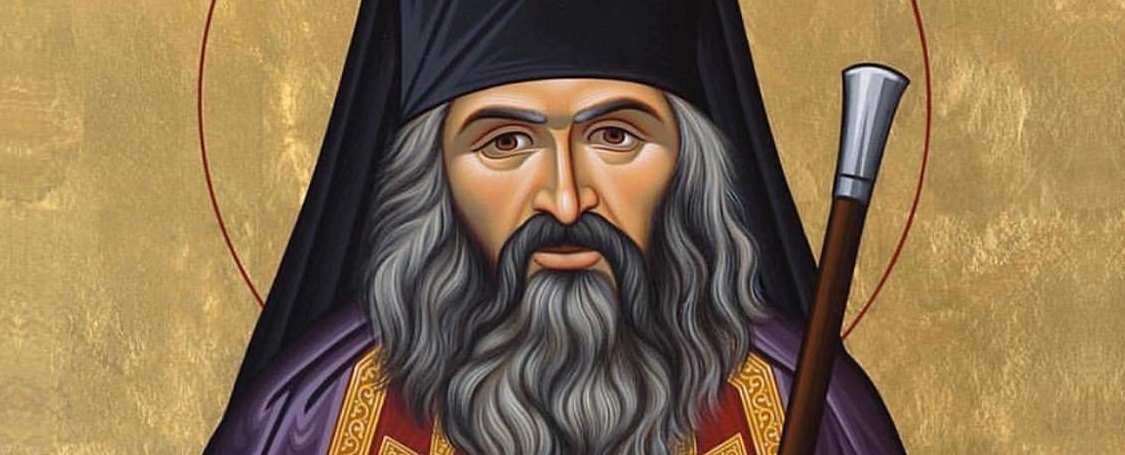
Do you think that to live according to the faith and to fulfill the will of God is very difficult? Think again, says St. John Maximovitch. Fulfilling the will of God is very easy if we first pay attention to the little things. St. John tells us how.

Source: St. Andrew Greek Orthodox Church
By St. John Maximovitch
Many people believe that to live according to the faith and to fulfill the will of God is very difficult. Actually — it’s very easy. One needs only attend to details, to trifles, and try to avoid evil in the slightest and most trivial things. This is the simplest and surest way to enter the world of the Spirit and draw near to God. A man often thinks that the Creator demands great things of him, that the Gospel insists on complete self-sacrifice, the abolition of one’s personhood, etc., as a condition of faith. A man is so frightened by this that he begins to be afraid of becoming acquainted with God, of drawing near to God, and hides himself from God, not even wishing to look into God’s Word. “If I can’t do anything important for God, then I’d just better stay away from things spiritual, stop thinking about eternity, and live “in a normal way.”
There exists at the entrance to the spiritual realm a “hypnosis of great deeds: “One must either do some big thing or do nothing. And so people do nothing at all for God or for their souls! It is very strange — the more a man is devoted to the little things of life, the less he wishes to be honest or pure or faithful to God in those same little things. And, moreover, each one must adopt a correct attitude toward little things if one wishes to come near to the Kingdom of Heaven.
Wishes to come near: In this is summed up all the difficulties of the religious life. Often one wishes to enter into the Kingdom of Heaven quite unexpectedly, in some miraculous and magical way, or, by right — through some kind of great feat. But neither the one nor the other is the right way to find the higher world. One does not enter God’s presence in some wondrous manner while remaining indifferent on earth to the needs of the Kingdom of God and its bright eternity, nor can one purchase the treasures of the Kingdom of God by some kind of eternal act, however great that act might be. Yet good deeds, holy deeds are necessary for one to grow into a higher life, a bright will, a good desire, a heavenly psychology, a heart that is both pure and fair.
A glass of water: “Verily, verily I say unto you that whosoever offers one of the least of these but a cup of cold water, in the name of a disciple, shall not lose his reward.” In this saying of the Lord is the highest expression of the smallest of the good. “A glass of water” — this is not much.
Communicating in good spirit: In every communication between people there must without fail be a good spirit: this spirit is Christ, openly manifest or hidden. “In the name of a disciple”: this is the first step in communicating with another person in the name of Jesus Christ Himself. Many people, not as yet knowing the Lord and the wondrous fellowship in His Name still have among themselves an unselfish, pure and human fellowship which brings them ever closer to the Spirit of Christ.
The lesser good is necessary: As a matter of fact, the lesser good is more necessary for mankind than the greater. People can get along with their lives without the greater good; without the lesser they cannot exist. Mankind perishes not from a lack of the greater good, but from an insufficiency of just this lesser good. The greater good is no more than a roof, erected on the brick walls of the lesser good.
The lesser, easier good was left on this earth for man by the Creator Himself, who took all the greater good upon Himself. Whosoever does the lesser, the same creates — and through him the Creator Himself creates — the greater good. Of our little good the Creator makes His Own great good. For as our Lord is the Creator Who formed all things from nothingness, so is He more able to create the greater good from the lesser.
Through such lesser, easy work, done with the greatest simplicity, a man is accustomed to the good and begins to serve it with his whole heart, sincerely, and in this way enters into an atmosphere of good, lets down the roots of his life into new soil, the soil of the good. The roots of human life quickly accommodate themselves to this good earth, and soon cannot live without it…Thus is a man saved: from the small comes the great. “Faithful in little things” turns out to be “faithful in the greater.”
Our moral sense: Lay aside all theoretical considerations that it is forbidden to slaughter millions, women, children, and elderly; be content to manifest your moral sense by in no way killing the human dignity of your neighbor, neither by word, nor by innuendo, nor by gesture. Do not be angry over trifles “against your brother vainly” (St. Matthew 5:22) or in the daily contacts of life speak untruth to your neighbor. These are trifles, small change, of no account; but just try to do this and you will see what comes of it.
Prayer: It is hard to pray at night. But try in the morning. If you can’t manage to pray at home than at least as you ride to your place of employment to attempt with a clear head the “Our Father” and let the words of this short prayer resound in your heart. And at night commend yourself with complete sincerity into the hands of the Heavenly Father. This indeed is very easy.
And give, give a glass of cold water to everyone who has need of it; give a glass filled to the brim with simple human companionship to everyone that lacks it, the very simplest companionship…
“O wondrous path of little things, I sing thee a hymn! Surround yourselves, O people, gird up yourselves with little works of good — with a chain of little, simple, easy and good feelings which cost us naught, a chain of bright thoughts, words and deeds. Let us abandon the big and the difficult. That is for them that love it and not for us for whom the Lord in His Mercy, for us who have not yet learned to love the greater, has poured forth the lesser love everywhere, free as water and air.”

About the Author

-
Our father among the saints John (Maximovitch), Archbishop of Shanghai and San Francisco (1896-1966), was a diocesan bishop of the Russian Orthodox Church Outside Russia (ROCOR) who served widely from China to France to the United States.
He departed this life on June 19 (O.S.) / July 2 (N.S.), 1966, and was officially glorified by the Russian Orthodox Church Abroad on July 2, 1994. His glorification was later recognized for universal veneration by the Patriarchate of Moscow on July 2, 2008.